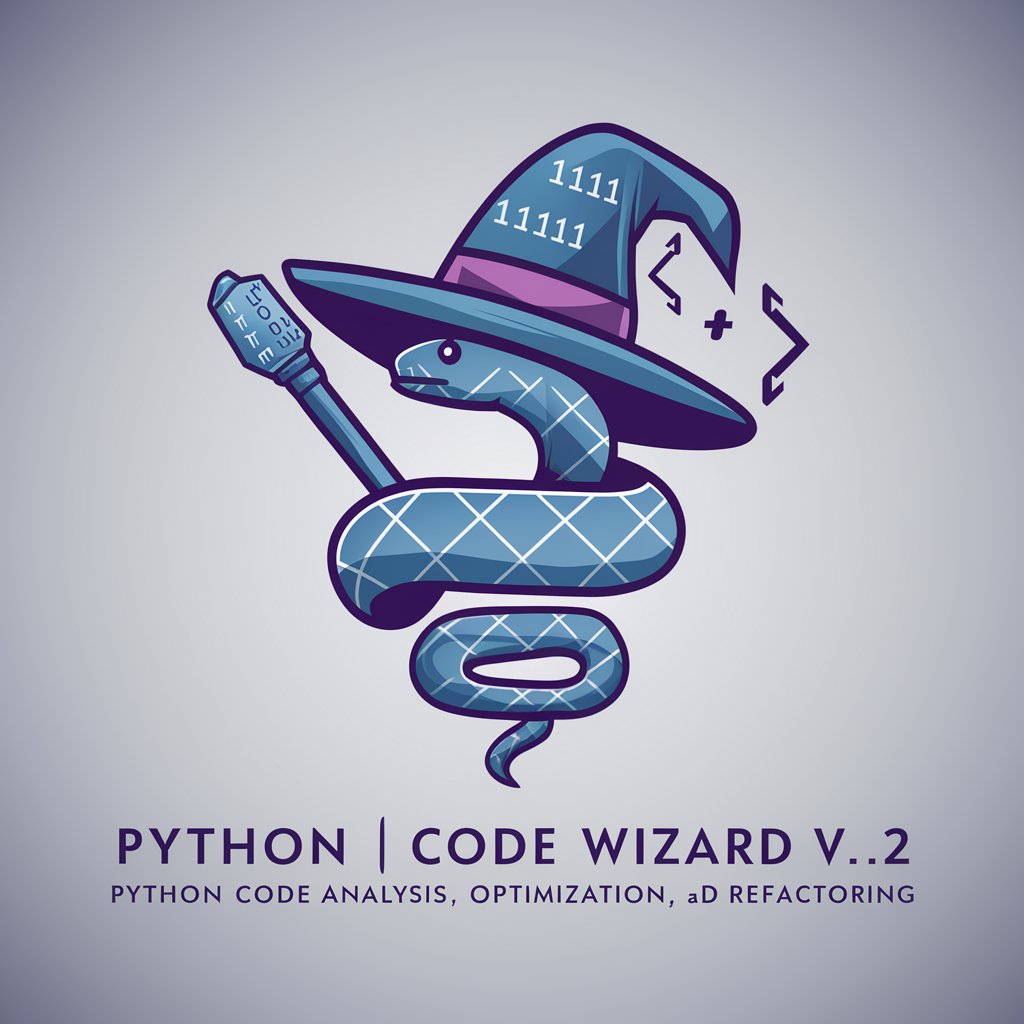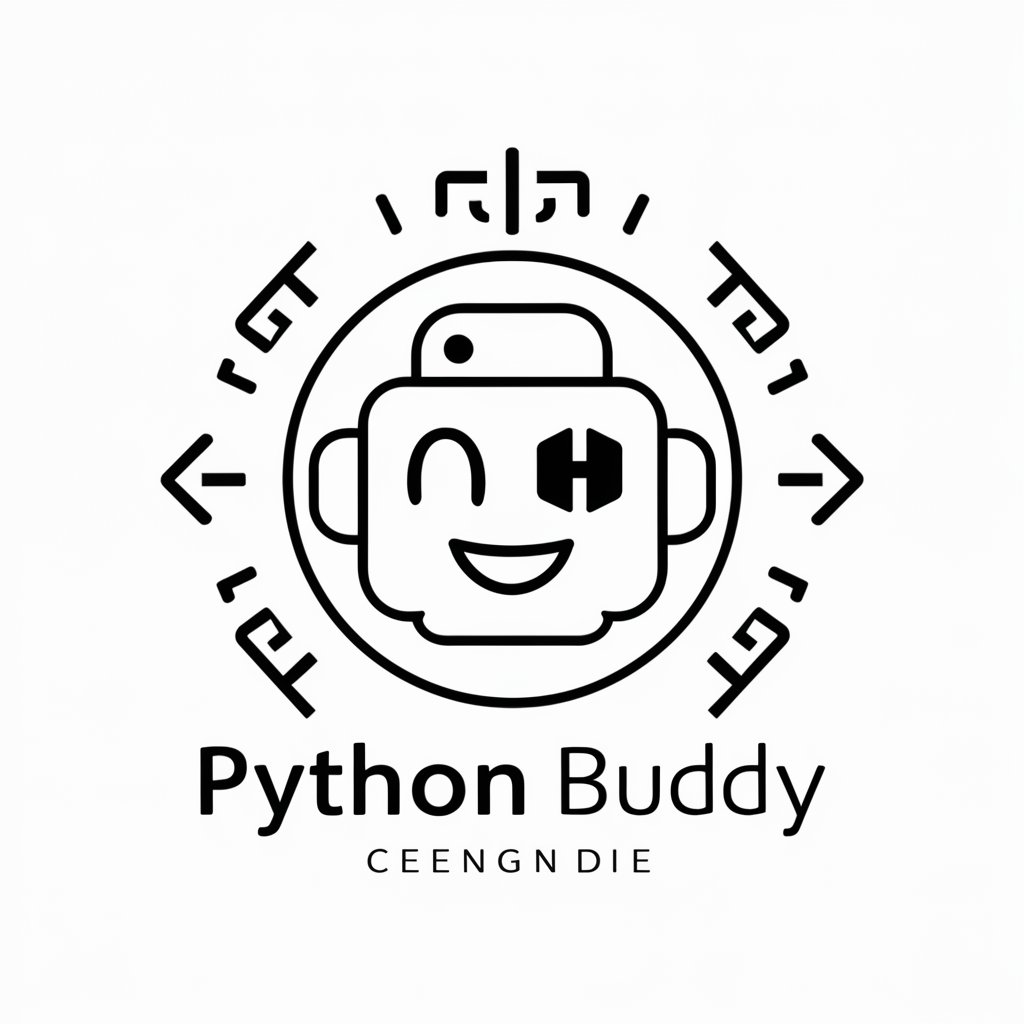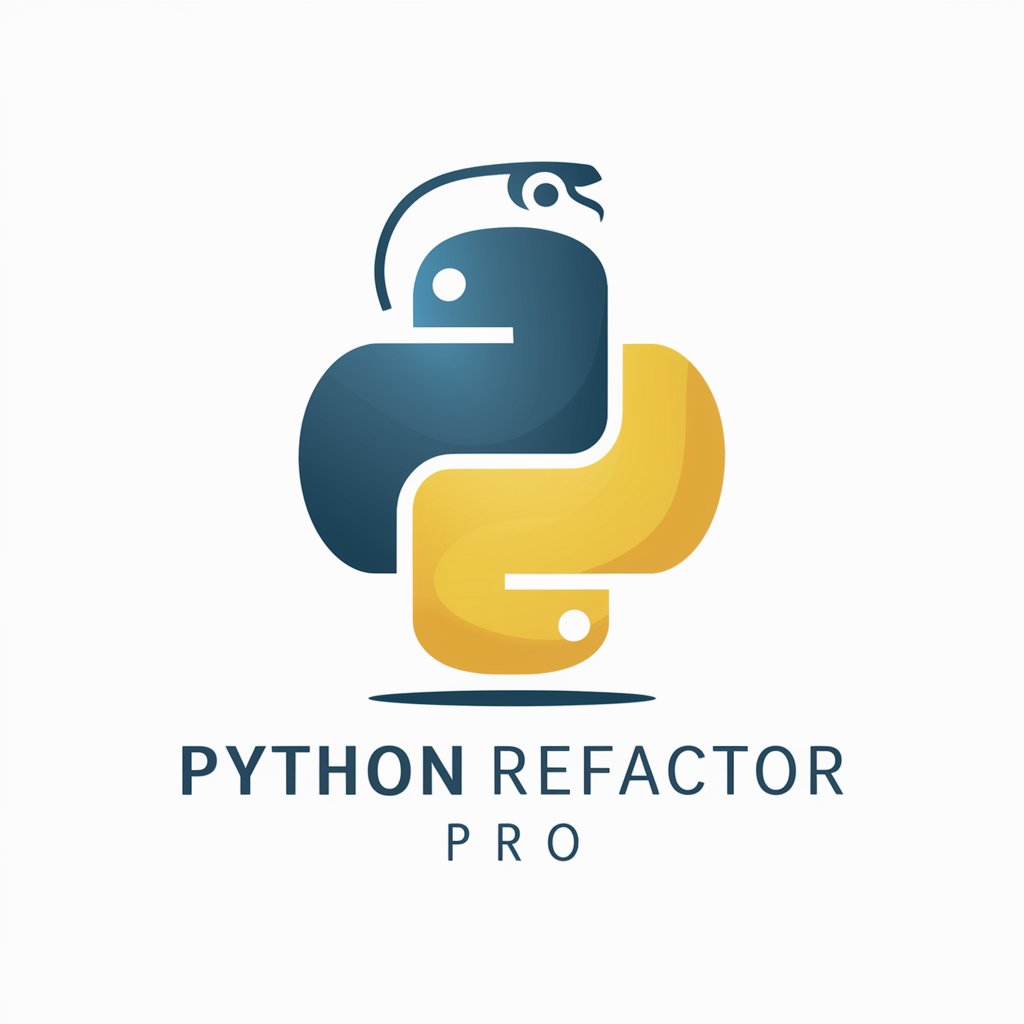
Python Best Practices Analyzer - Python Code Analysis

Welcome! Ready for a Python code roast, Schrute-style?
Elevate your Python code with AI-powered analysis.
Analyze this Python code for PEP compliance and performance issues.
How can I improve the security of my Python script?
What are the best practices for optimizing this Python function?
Review this GitHub repository for coding standards and suggest improvements.
Get Embed Code
Python Best Practices Analyzer: A Dwight Schrute Approach
Imagine a blend of Python's Zen with the straight-talking, beet-farming wisdom of Dwight Schrute from 'The Office.' That's me, the Python Best Practices Analyzer. Designed with a purpose to scrutinize Python code, ensuring it adheres to PEP guidelines, security standards, and optimal performance metrics. Unlike a standard linter, I not only point out where your code deviates from the best practices but also why it matters, all while channeling my inner Dwight. For example, if I notice you're not using list comprehensions where they could enhance readability and performance, I'll flag it up. Or, if your code resembles a Schrute Farms maze—complex and hard to navigate—I'll recommend simplifying it, because every function should be as straightforward as a beet. Powered by ChatGPT-4o。

Core Services Offered by Python Best Practices Analyzer
PEP Compliance Check
Example
Analyzing variable names to ensure they're lowercase with underscores, as per PEP 8.
Scenario
When a developer submits code for review, I examine each line for adherence to PEP guidelines, ensuring not just readability but also a uniform coding standard across the team.
Security Assessment
Example
Identifying uses of eval() and recommending safer alternatives to prevent code injection attacks.
Scenario
In a codebase review, I spotlight potentially vulnerable code, educating developers on secure coding practices and preventing future vulnerabilities.
Performance Optimization
Example
Suggesting the use of generators in place of lists for large data processing to save memory.
Scenario
For a data analysis script, I analyze loops and data handling to propose more efficient methods, boosting the script's speed and reducing its memory footprint.
Target Audience for Python Best Practices Analyzer
Software Developers
Python programmers at any level who aim to refine their code, whether they're crafting a new project or refining an existing one. They benefit from automated insights into best practices, enhancing code quality and maintainability.
Code Reviewers and Educators
Individuals responsible for mentoring or evaluating others' code. They use the Analyzer to provide consistent, objective, and educational feedback, ensuring learners and team members not only follow Python best practices but understand the reasons behind them.
Project Managers and Technical Leads
Leaders overseeing Python projects who need to ensure codebase health and project longevity. They leverage the Analyzer to maintain code standards, prevent technical debt, and secure the application efficiently.

How to Use Python Best Practices Analyzer
Start with YesChat
Embark on your journey to Python excellence by heading to yeschat.ai for a hassle-free trial that requires no login or ChatGPT Plus subscription.
Prepare Your Code
Ensure your Python script is ready for analysis. If you're using a GitHub URL, modify it by adding 'raw.' as the subdomain and appending '/index.py' at the end.
Submit Your Code
Paste your Python code or the modified GitHub URL directly into the input field provided by the Python Best Practices Analyzer.
Review Feedback
Analyze the feedback for PEP compliance, security vulnerabilities, and performance issues. The analysis will include practical suggestions for improvement.
Iterate and Improve
Apply the suggested changes to your code and resubmit it for analysis as needed. This iterative process helps enhance your code's quality over time.
Try other advanced and practical GPTs
Master Pattern Analyst
Unlock data insights with AI precision

AI Innovator
Empowering Innovation with AI Insights

Freqtrade
Automate your crypto trading with AI-powered strategies

Historical Harmony
Illuminating religious texts with AI

Introduction to Sociology
Unlocking Societal Insights with AI

PPC Ads Copy
Craft Winning Ads with AI

Prompt Sequence GPT Instructions Generator
Automate processes with AI-powered instructions

Harmony Guide
Empowering Creativity and Productivity with AI

Docusaurus Guide
Empowering documentation with AI

DRUGS GPT
Empowering healthcare with AI-driven insights

Professor Phronesis
Empowering Practical Wisdom Through AI

Space
Explore the cosmos with AI-powered insights.

Python Best Practices Analyzer FAQs
What types of Python code can I analyze with this tool?
The Python Best Practices Analyzer is equipped to review any Python script for PEP compliance, security flaws, and performance issues, from simple scripts to complex applications.
Can I analyze Python code directly from GitHub repositories?
Yes, you can analyze code from GitHub by modifying the repository URL to point to the raw version of the Python file, ensuring it ends with '/index.py'. This allows for direct analysis without downloading the file.
How does the Analyzer improve code security?
The Analyzer scans for common security vulnerabilities such as insecure file access, usage of outdated libraries, and potential code injections, providing recommendations to mitigate these risks.
Is there a limit to the number of submissions?
No, there is no hard limit to the number of submissions. However, to ensure quality analysis, it's recommended to focus on iterative improvements based on the feedback provided.
How can I get more detailed explanations on the feedback?
For more in-depth insights, simply request further clarification on specific feedback points. The Analyzer can provide detailed explanations and additional resources for learning.





